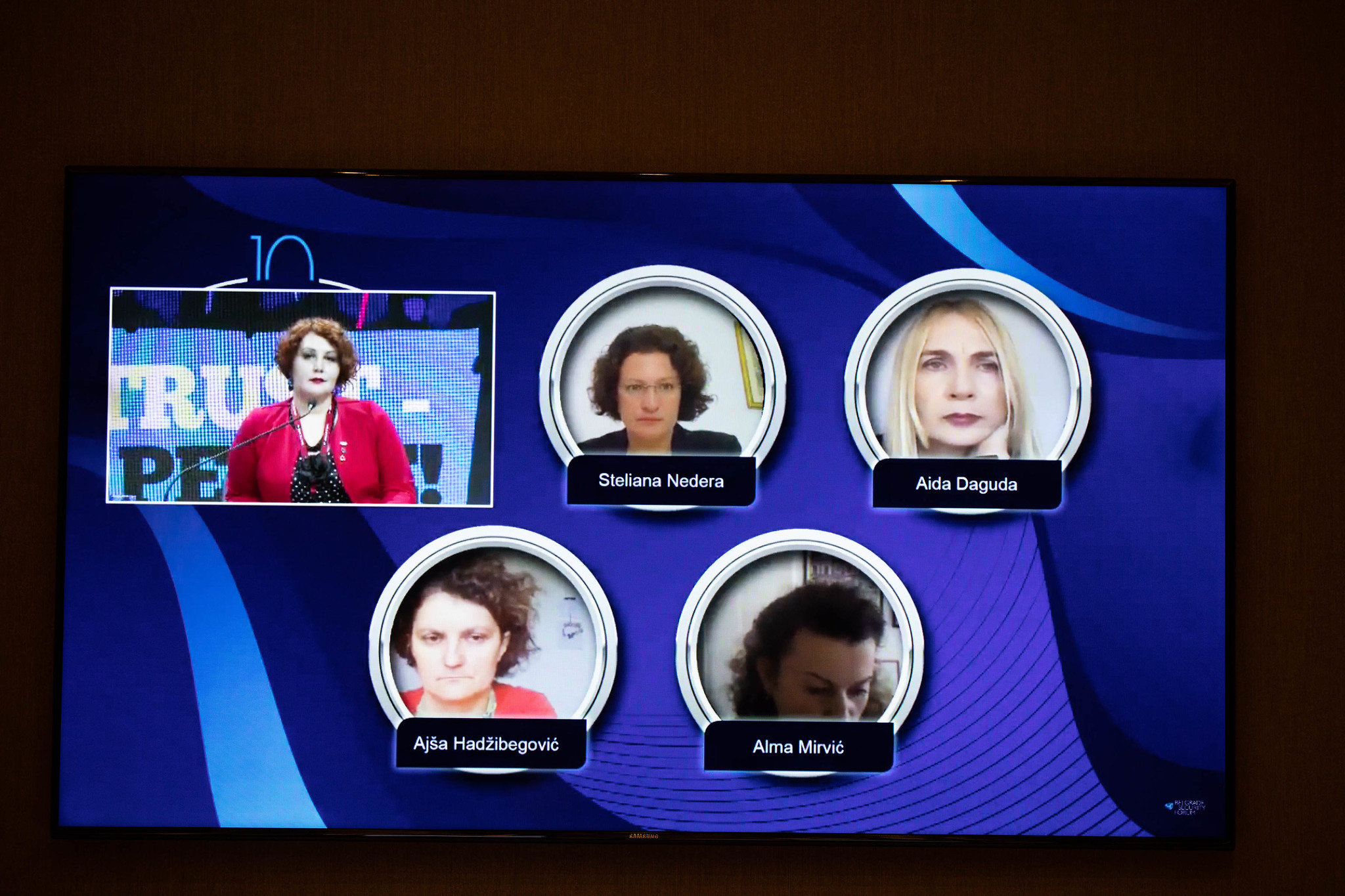Building Trust and Social Cohesion
The trust as a value and one of the main sources of social cohesion were discussed during the all-women session on the last day of the Belgrade Security Forum 2020. As speakers agreed that trust represents the key element of social cohesion in a community, they focused on a time of crisis and stressed the importance of the dialogue between various actors in society, in order to contribute to the overall well-being of all citizens.
Stelliana Nedera, UNDP representative in Bosnia and Herzegovina, pointed out that the topic of trust is a great lens that brings us all together. The crisis has brought the matter of the fabric of society in the spotlight, making people work together and connect. According to her strong social cohesion is necessary for society to go forward.
New environment in the 21st century is calling for adjustments and the main toolkit for building a better society in the 21st century definitely is the social capital, social cohesion, and the social contract.
Aida Daguda, Director of Civil Society Promotion Center emphasized that social cohesion indeed exists and that was something rooted in our society which was easy to notice during the time of crisis. Daguda stressed that is important to analyze the ongoing pandemic very closely in order to notice different initiatives and voluntary actions taken by different actors in society.
Pointing out the role of media, she said that it should pay more attention to the examples of good that went unnoticed and work more on promoting voluntarism and solidarity.
Ajša Hadžibegović, Trainer, Facilitator, and Consultant at Frankly Speaking, argued that there was a lack of connection between the institutions and citizens, which represents a problem that should be addressed.
Political elites should be closer to citizens, but one more important element that is missing, especially in the Western Balkans and that is civic activism. Instead of finding someone to blame, we should put our energy into finding solutions and jointly work on moving from the status quo.
Svetlana Stefanović, Executive Director, Belgrade Security Forum and Program Coordinator at the Belgrade Fund for Political Excellence, tackled the issue of core values and its importance for strengthening solidarity. She said that people were not well informed about each other and that was one of the main reasons why we needed to start connecting with each other more.
The problem that is present at a local level, shows us what is wrong at a global level.
Stefanović mentioned the initiatives Dialogue for the Future and Women of the Balkans for New Politics as examples of good practise on how to initiate stronger relations between people by creating networks and providing mentoring and community support.








